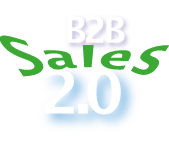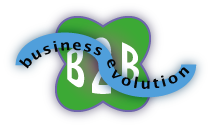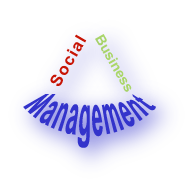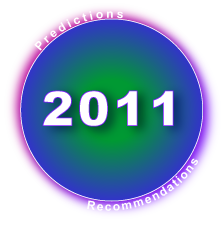 In Why Lie?, Seth Godin points out that prospects of (B2B) salespeople often lie because they do not want their decisions to be questioned by salespeople: “… when we announce that we’ve made the decision to hire someone else, or when we tell the pitching entrepreneur we don’t like her business model, or when we clearly articulate why we’re not going to do business, the salesperson responds by questioning the judgment of the prospect.” In Why Lie?, Seth Godin points out that prospects of (B2B) salespeople often lie because they do not want their decisions to be questioned by salespeople: “… when we announce that we’ve made the decision to hire someone else, or when we tell the pitching entrepreneur we don’t like her business model, or when we clearly articulate why we’re not going to do business, the salesperson responds by questioning the judgment of the prospect.”
Great insight, but it pre-supposes a lack of trust that is totally outdated and unnecessary. Let’s review how this comes about and how to disrupt the whole cycle.
[…]
Redrawing Your Map: Selling in the Knowledge Economy explains how the 21st century and digital social networks are changing client behavior, and sales, forever.

Having started in business in the 1980s in Chicago, I have had a front row seat to the waning of the Industrial Economy, which has created unprecedented human wealth through fabrication, distribution and scale in countless iterations. Its meltdown sets the context for a profound shift in all businesses, and it holds the key to understanding the new ways to bring new business to your firm. The Industrial Economy practice that is known today as “selling” is on life support in the ICU, and it won’t survive in most areas of the economy. Here I’ll explain how profoundly things have shifted and how you can use this understanding to revitalize how you bring new business to your firm. I’ll close with how social business empowers this disruption.
[…]
B2B Customers Getting Social Fast: How Marketing and Sales Can Evolve explains how clients/customers are smarter and want a new kind of relationship | The new economics of business reputation
 While preparing to launch Social Business Services for B2B Sales in January 2012, I have been engaged in its Ecosystem Audit. I have plumbed online conversations about B2B Sales and Marketing adoption of social business (erstwhile social media). I have been struck by a recurring realization: a large part of Marketing and Sales as we know them is significantly out of alignment with B2B customers. Social business is permeating customer networks throughout the economy and changing customer behavior and expectations. This has created a rare opportunity for B2B marketing and sales people who understand and respond ahead of the market. If I’m right, this could be one of the most important posts you read this year. While preparing to launch Social Business Services for B2B Sales in January 2012, I have been engaged in its Ecosystem Audit. I have plumbed online conversations about B2B Sales and Marketing adoption of social business (erstwhile social media). I have been struck by a recurring realization: a large part of Marketing and Sales as we know them is significantly out of alignment with B2B customers. Social business is permeating customer networks throughout the economy and changing customer behavior and expectations. This has created a rare opportunity for B2B marketing and sales people who understand and respond ahead of the market. If I’m right, this could be one of the most important posts you read this year.
Two quick examples of misalignment: one of Marketing’s underlying assumptions is that it is not economically feasible to have large-scale one-on-one customer conversations, so marketing must […]
 Social Business: How Firm Size Affects Strategy and Execution outlines differences firm size presents in social business initiatives. I recently participated in a discussion in which we debated how size of brand or firm should affect social business strategy, so I’ll dive deeper into the issues here because they are an excellent opportunity to show how strategy and execution are connected and how they differ. I’ll compare how startups and enterprises approach four areas of executing a social business initiative: team, collaboration, learning and scaling. Social Business: How Firm Size Affects Strategy and Execution outlines differences firm size presents in social business initiatives. I recently participated in a discussion in which we debated how size of brand or firm should affect social business strategy, so I’ll dive deeper into the issues here because they are an excellent opportunity to show how strategy and execution are connected and how they differ. I’ll compare how startups and enterprises approach four areas of executing a social business initiative: team, collaboration, learning and scaling.
[…]
Must read post speculating on whether Google will integrate Google+ with Docs to make an enterprise play, disrupting Yammer, Socialtext and other lightweight social enterprise players. This is exactly how to think and why most people miss the true significance of Google+: it’s a social infrastructure into which users will be able to plug many of their other Web activities (such as using Google Docs, Gmail, Payments, etc.). This makes it far more significant that "another social network." Thx @jowyang #fb […]
Understanding Web 3.0 as Data: Reid Hoffman, Founder LinkedIn summarizes business opportunities and privacy threats of the emerging sea of social data as well as outlining Web 3.0 key concepts and importance.
 In addition to being the founder of LinkedIn, Reid Hoffman is a Valley insider with rich insight into technology trends, markets and building companies. His main message in this talk at South by Southwest 2011 was that the future was bearing down on us, and he prophesied that it would “arrive sooner and be stranger than we think.” In addition to being the founder of LinkedIn, Reid Hoffman is a Valley insider with rich insight into technology trends, markets and building companies. His main message in this talk at South by Southwest 2011 was that the future was bearing down on us, and he prophesied that it would “arrive sooner and be stranger than we think.”
He painted the context for his theme, “Web 3.0 as data,” with a simple timeline: […]
 Giving as Smart Business: Blake Mycoskie, Founder TOMS Shoes is a fantastic story and a smart business idea. Blake Mycoskie is a gifted storyteller in his own right, and, in this South by Southwest 2011 keynote, he entertained the audience with the story of TOMS Shoes while imparting a simple but profound principle of 21st century business: discovering the meaning and potential of giving. Here are the highlights of TOMS story, which will help you appreciate the context of the blockbuster business idea. Giving as Smart Business: Blake Mycoskie, Founder TOMS Shoes is a fantastic story and a smart business idea. Blake Mycoskie is a gifted storyteller in his own right, and, in this South by Southwest 2011 keynote, he entertained the audience with the story of TOMS Shoes while imparting a simple but profound principle of 21st century business: discovering the meaning and potential of giving. Here are the highlights of TOMS story, which will help you appreciate the context of the blockbuster business idea.
[…]
 The Maple Leaf Digital Lounge has selected the Social Network Roadmap(SM) to build the social presence behind its launch, and CSRA has been working with their team for a few weeks. The Maple Leaf Digital Lounge (“MLDLCA”) is a virtual ecosystem that promotes discovery and collaboration among Canadian digital startups, foreign and Canadian investors and other enablers. Their mission is to facilitate cross-border high tech deals. “The Lounge” has two incarnations: several online venues combined with periodic physical events. Their launch event will happen on March 12 at the South by Southwest Interactive (“SxSW”) conference. Read on for my insights from working with them so far. The Maple Leaf Digital Lounge has selected the Social Network Roadmap(SM) to build the social presence behind its launch, and CSRA has been working with their team for a few weeks. The Maple Leaf Digital Lounge (“MLDLCA”) is a virtual ecosystem that promotes discovery and collaboration among Canadian digital startups, foreign and Canadian investors and other enablers. Their mission is to facilitate cross-border high tech deals. “The Lounge” has two incarnations: several online venues combined with periodic physical events. Their launch event will happen on March 12 at the South by Southwest Interactive (“SxSW”) conference. Read on for my insights from working with them so far.
Also see the case study in video and presentation formats, which illustrates the social business model, Digivents. Note, the case study uses the MLDLCA’s new name, North of 41.
[…]
 2011 Social Business Predictions and Recommendations describes current social business adoption and advices firms and people how to get ahead. 2011 Social Business Predictions and Recommendations describes current social business adoption and advices firms and people how to get ahead.
2011 will be remembered as the year “social media” fell by the wayside, strategy became a recognized prerequisite for serious efforts, and “social business” began displacing it in boardrooms’ mindshare. “Social media,” which usually tries to use social technologies to talk at people, has been the predominant “first use” of socialtech because marketing drives most social initiatives, and marketers “communicate,” i.e. push content, to their targets. When they “listen,” they use limited legacy processes such as focus groups, email marketing, data mining and online surveys. However, none of these scratch the real itch because they emphasize the company asking individuals structured questions; they don’t allow customer to customer interaction, which is ten times more illuminating because it is spontaneous and customer-centric.
Socialtech gets there, but marketers are ambivalent about it because it means a loss of control. And more profits and career growth for marketers, but they have to let go first. It’s a leap of faith, but […]
At first, it seemed that the machine had tilted, its levers, bells and flippers having hit some kind of glitch, causing us to lose the ball and the bonus points.
 As the curtain rises on the second decade of the twenty-first century, we will see that the machine is actually fine, but it’s become a different game. Quite entirely. To put it mildly, “the economy” is proving to be quite a drama, its pungence largely dependent on where your company or career is wired into it. Although it is quite frowned upon in the U.S. to admit despair, some pundits have even flirted with the moniker, “The Great Recession” to describe the crisis, a faint nod to the Great Depression of the 1930s, but this comparison is off-base. As I have argued for some time, the 2007-2010 “financial crisis” has played a mere overture to the real story, a transformation of the global “economic architecture.” I first heard this deft phrase from His Excellency Shri Kamal Nath, India’s very diplomatic Minister of Commerce in 2008 (coverage here). As the curtain rises on the second decade of the twenty-first century, we will see that the machine is actually fine, but it’s become a different game. Quite entirely. To put it mildly, “the economy” is proving to be quite a drama, its pungence largely dependent on where your company or career is wired into it. Although it is quite frowned upon in the U.S. to admit despair, some pundits have even flirted with the moniker, “The Great Recession” to describe the crisis, a faint nod to the Great Depression of the 1930s, but this comparison is off-base. As I have argued for some time, the 2007-2010 “financial crisis” has played a mere overture to the real story, a transformation of the global “economic architecture.” I first heard this deft phrase from His Excellency Shri Kamal Nath, India’s very diplomatic Minister of Commerce in 2008 (coverage here).
[…]
|
|
 In Why Lie?, Seth Godin points out that prospects of (B2B) salespeople often lie because they do not want their decisions to be questioned by salespeople: “… when we announce that we’ve made the decision to hire someone else, or when we tell the pitching entrepreneur we don’t like her business model, or when we clearly articulate why we’re not going to do business, the salesperson responds by questioning the judgment of the prospect.”
In Why Lie?, Seth Godin points out that prospects of (B2B) salespeople often lie because they do not want their decisions to be questioned by salespeople: “… when we announce that we’ve made the decision to hire someone else, or when we tell the pitching entrepreneur we don’t like her business model, or when we clearly articulate why we’re not going to do business, the salesperson responds by questioning the judgment of the prospect.”

 While preparing to launch Social Business Services for B2B Sales in January 2012, I have been engaged in its Ecosystem Audit. I have plumbed online conversations about B2B Sales and Marketing adoption of social business (erstwhile social media). I have been struck by a recurring realization: a large part of Marketing and Sales as we know them is significantly out of alignment with B2B customers. Social business is permeating customer networks throughout the economy and changing customer behavior and expectations. This has created a rare opportunity for B2B marketing and sales people who understand and respond ahead of the market. If I’m right, this could be one of the most important posts you read this year.
While preparing to launch Social Business Services for B2B Sales in January 2012, I have been engaged in its Ecosystem Audit. I have plumbed online conversations about B2B Sales and Marketing adoption of social business (erstwhile social media). I have been struck by a recurring realization: a large part of Marketing and Sales as we know them is significantly out of alignment with B2B customers. Social business is permeating customer networks throughout the economy and changing customer behavior and expectations. This has created a rare opportunity for B2B marketing and sales people who understand and respond ahead of the market. If I’m right, this could be one of the most important posts you read this year. Social Business: How Firm Size Affects Strategy and Execution outlines differences firm size presents in social business initiatives. I recently participated in a discussion in which we debated how size of brand or firm should affect social business strategy, so I’ll dive deeper into the issues here because they are an excellent opportunity to show how strategy and execution are connected and how they differ. I’ll compare how startups and enterprises approach four areas of executing a social business initiative: team, collaboration, learning and scaling.
Social Business: How Firm Size Affects Strategy and Execution outlines differences firm size presents in social business initiatives. I recently participated in a discussion in which we debated how size of brand or firm should affect social business strategy, so I’ll dive deeper into the issues here because they are an excellent opportunity to show how strategy and execution are connected and how they differ. I’ll compare how startups and enterprises approach four areas of executing a social business initiative: team, collaboration, learning and scaling. In addition to being the founder of LinkedIn, Reid Hoffman is a Valley insider with rich insight into technology trends, markets and building companies. His main message in this talk at South by Southwest 2011 was that the future was bearing down on us, and he prophesied that it would “arrive sooner and be stranger than we think.”
In addition to being the founder of LinkedIn, Reid Hoffman is a Valley insider with rich insight into technology trends, markets and building companies. His main message in this talk at South by Southwest 2011 was that the future was bearing down on us, and he prophesied that it would “arrive sooner and be stranger than we think.” Giving as Smart Business: Blake Mycoskie, Founder TOMS Shoes is a fantastic story and a smart business idea. Blake Mycoskie is a gifted storyteller in his own right, and, in this South by Southwest 2011 keynote, he entertained the audience with the story of TOMS Shoes while imparting a simple but profound principle of 21st century business: discovering the meaning and potential of giving. Here are the highlights of TOMS story, which will help you appreciate the context of the blockbuster business idea.
Giving as Smart Business: Blake Mycoskie, Founder TOMS Shoes is a fantastic story and a smart business idea. Blake Mycoskie is a gifted storyteller in his own right, and, in this South by Southwest 2011 keynote, he entertained the audience with the story of TOMS Shoes while imparting a simple but profound principle of 21st century business: discovering the meaning and potential of giving. Here are the highlights of TOMS story, which will help you appreciate the context of the blockbuster business idea. The Maple Leaf Digital Lounge has selected the Social Network Roadmap(SM) to build the social presence behind its launch, and CSRA has been working with their team for a few weeks. The Maple Leaf Digital Lounge (“MLDLCA”) is a virtual ecosystem that promotes discovery and collaboration among Canadian digital startups, foreign and Canadian investors and other enablers. Their mission is to facilitate cross-border high tech deals. “The Lounge” has two incarnations: several online venues combined with periodic physical events. Their launch event will happen on March 12 at the South by Southwest Interactive (“SxSW”) conference. Read on for my insights from working with them so far.
The Maple Leaf Digital Lounge has selected the Social Network Roadmap(SM) to build the social presence behind its launch, and CSRA has been working with their team for a few weeks. The Maple Leaf Digital Lounge (“MLDLCA”) is a virtual ecosystem that promotes discovery and collaboration among Canadian digital startups, foreign and Canadian investors and other enablers. Their mission is to facilitate cross-border high tech deals. “The Lounge” has two incarnations: several online venues combined with periodic physical events. Their launch event will happen on March 12 at the South by Southwest Interactive (“SxSW”) conference. Read on for my insights from working with them so far. 2011 Social Business Predictions and Recommendations describes current social business adoption and advices firms and people how to get ahead.
2011 Social Business Predictions and Recommendations describes current social business adoption and advices firms and people how to get ahead. As the curtain rises on the second decade of the twenty-first century, we will see that the machine is actually fine, but it’s become a different game. Quite entirely. To put it mildly, “the economy” is proving to be quite a drama, its pungence largely dependent on where your company or career is wired into it. Although it is quite frowned upon in the U.S. to admit despair, some pundits have even flirted with the moniker, “The Great Recession” to describe the crisis, a faint nod to the Great Depression of the 1930s, but this comparison is off-base. As I have argued for some time, the 2007-2010 “financial crisis” has played a mere overture to the real story, a transformation of the global “economic architecture.” I first heard this deft phrase from His Excellency Shri Kamal Nath, India’s very diplomatic Minister of Commerce in 2008 (coverage here).
As the curtain rises on the second decade of the twenty-first century, we will see that the machine is actually fine, but it’s become a different game. Quite entirely. To put it mildly, “the economy” is proving to be quite a drama, its pungence largely dependent on where your company or career is wired into it. Although it is quite frowned upon in the U.S. to admit despair, some pundits have even flirted with the moniker, “The Great Recession” to describe the crisis, a faint nod to the Great Depression of the 1930s, but this comparison is off-base. As I have argued for some time, the 2007-2010 “financial crisis” has played a mere overture to the real story, a transformation of the global “economic architecture.” I first heard this deft phrase from His Excellency Shri Kamal Nath, India’s very diplomatic Minister of Commerce in 2008 (coverage here).